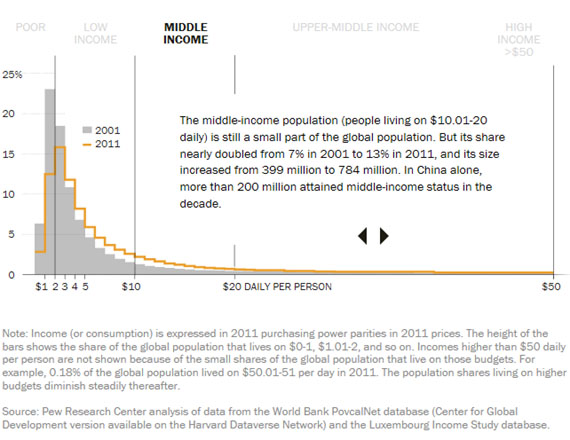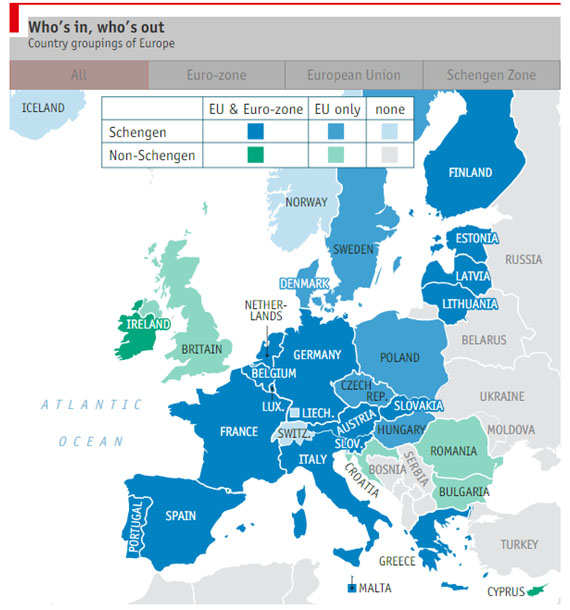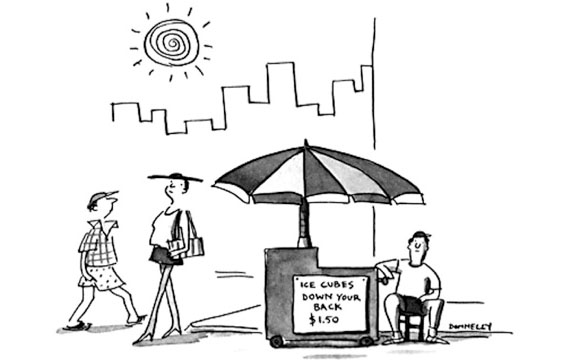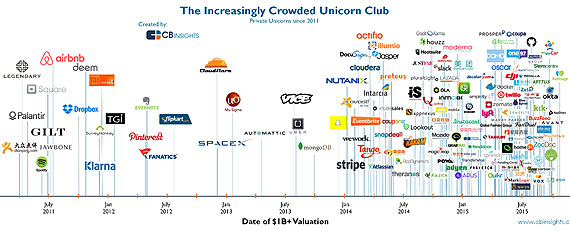
Today’s Top 10 is a guest post from Peter Wilson, Christina Leung and Killian Destremau of the NZIER Auckland office. For over 50 years NZIER economists have been helping clients analyse market, regulatory, social, and environmental trends to enable them to make informed and strategic decisions.
As always, we welcome your additions in the comments below or via email to david.chaston@interest.co.nz.
And if you're interested in contributing the occasional Top 10 yourself, contact gareth.vaughan@interest.co.nz.
See all previous Top 10s here.

1. Trump’s multi-billion dollar bill to Mexico for his proposed wall
Donald Trump’s proposal to build a wall against Mexico to keep out illegal immigrants – and send the bill to Mexico – is estimated to cost up to US$25 billion. The cost reflects the long stretch of the US-Mexico border, as well as the difficult terrain. In addition, it is estimated it will cost up to $750 million a year to maintain this wall.
The U.S. border with Mexico is roughly 2,000 miles long and underlines four states from California to Texas. It is a massive stretch of land — the Berlin Wall spanned just 96 miles comparatively, and it cost about $25 million to build in 1961, or around $200 million with inflation.

2. Older women are leading major economies and institutions
There has traditionally been a dearth of females the higher up the corporate and political ladder you go. Yet this is turning around. Age can now actually be seen as an advantage when taking the helm of a major corporation or economy, last year Angela Merkel was Time’s 2015 person of year. Key international institutions are also poised to increasingly be led by women, Christine Lagarde as GM of the IMF was a major step forward, and meanwhile Helen Clark gave her pitch to become UN’s first women secretary general.
Clinton, Yellen, and Warren may represent a small group, but it’s a striking one. All reached their 60s having raised families and built lengthy résumés. Rather than pull on their gardening gloves and totter out to spray the roses, however, all are surging well past the time when one might reasonably expect a white-collar worker to start watching the clock, waiting for her pension to kick in.

3. The expanding middle class: fact or fiction?
Despite all the focus on reducing global poverty, we are no closer to expanding the global middle class. The increase in wealth has been concentrated in China, South America and Eastern Europe.
Perhaps more importantly from an international perspective, the gap in living standards between the world’s economically advanced countries and emerging and developing nations barely narrowed in the first decade of this century. In 2001, 91% of the world’s high-income people lived in North America and Europe; in 2011, the share was 87%.

4. How should New Zealand brand itself beyond its flag?
We’ve decided to keep our current New Zealand flag. But there are many other ways we can develop our national brand to enhance the long-term economic potential of our country.
Countries that want to influence the world’s perceptions about them try to shape our impressions through such things as tourism bureaus, chambers of commerce, foreign trade administrators, among others — just as businesses try to influence customers’ perceptions of their brands through advertising. There is good reason for doing so: Attracting more businesses, trade, exports, investments and tourism strengthens a nation’s economy.

5. What will Brexit do to Britain?
Britain will on 23rd June vote on whether to remain in the European Union. Concern about what Brexit will do to the British economy is already denting business confidence and driving the British pound lower. Nonetheless, it is looking like it will turn into a close vote.
The effects of EU membership on trade patterns are difficult to measure, but John Springford of the Centre for European Reform, a London-based think-tank, and colleagues have carried out a modelling exercise which concluded that Britain’s trade with the rest of the EU was 55% greater than it would have been if outside.

6. Too hot to stand outside in the Gulf in the Middle East
There has been much discussion about the many effects of climate change. Some of the oil and gas rich nations in the Middle East have been resistant to measures to curb greenhouse gas emissions. But these nations may face extreme heat conditions which will make many areas inhabitable.
The scientists used standard climate computer models to show that the fatal WBT extremes would occur every decade or two after 2070 along most of the Gulf coast, if global warming is not curbed. Using the normal measure of temperature, the study shows 45C would become the usual summer maximum in Gulf cities, with 60C being seen in places like Kuwait City in some years.

7. The pros and cons of cheap oil
While cheap oil has been a boon to many industries such as aviation and agriculture, there may be unintended consequences. Lower oil prices transfer wealth from oil producers to oil consumers, but whether that will continue to boost the global economy depends on what is done with this wealth.
Such large swings in purchasing power always used to boost economic growth, because while producers were saving the profits from high prices, consumers tended to spend the windfall from low ones. One of the concerns about today’s low prices is that the positions may be reversing: the big winners, American consumers, are using the spare cash to pay off debts; meanwhile, losers such as Russia and Saudi Arabia are cutting back sharply on investment and public spending. If carried to extremes, that would mean a good old-fashioned Keynesian slowdown in a world economy trying to spend less and save more; the more likely result of which is that lower oil prices fail to give us the boost we hope for.

8. The refugee influx from Syria presents opportunities
While there is a debate over the pros and cons of accepting Syrian refugees, the influx of these refugees could provide a solution to Europe’s ageing population.
According to the European Commission, the greying of Europe is among the EU’s most serious social and economic challenges. More than one-fifth of Europeans will be 65 or older by 2025, placing great strain on social services and health care.
Integrating young migrants could provide a much-needed demographic boost. And unlike Jordan, Turkey, or Lebanon, Europe has far more resources to integrate them.

9. Are we approaching technological singularity?
Technological disruption in 2015 was more important than ever to CEOs all around the world, and it now consistently makes the top 5 of CEO’s greatest area of both risks and opportunities. At the same time, the last two years have been so far, by all standards, the golden years of unicorns (start-up company valued at over $1 billion, and so logically, decacorns are over $10 billion) with little signs of it slowing down.
Futurists like Vernor Vinge and Ray Kurzweil have argued that accelerating pace of smarter and smarter machines will soon outrun all human capabilities. They call this tipping point the singularity, because they believe it is impossible to predict how the human future might unfold after this point.
But Paul Allen disagrees and, once again, the world can thank Microsoft for keeping us in the light.
The amazing intricacy of human cognition should serve as a caution to those who claim the singularity is close. Without having a scientifically deep understanding of cognition, we can’t create the software that could spark the singularity. Gaining a comprehensive scientific understanding of human cognition is one of the hardest problems there is. We continue to make encouraging progress. But by the end of the century, we believe, we will still be wondering if the singularity is near.

10. Is Brazil in deep trouble?
Brazil has gone from an impressive economic boom to the worst crisis in its modern history in less than a decade. The country’s situation appears even bleaker due to the deep and complicated political crisis, with the president, Dilma Rousseff, facing impeachment in congress.
Some claim however, that a wider look at the trends shows the economy is in for an upswing.
The perfect storm is dissipating. Agrarian commodities and oil prices cannot get much worse. Indeed, since the devaluation of the real, Brazil’s balance of trade is already showing positive results. The rains are back, filling the dams and lowering energy prices. Some of the questionable state investments in infrastructure are finally maturing. After two years of deep recession, a fast recovery can happen based on the existing capacity of factories, without requiring a significant increase in investments. We have seen this pattern before.

22 Comments
I vote #6 as doom porn post of the year. It right up there with Tim Flannery or the children not knowing what snow is circa 2000.
"According to Dr David Viner, a senior research scientist at the climatic research unit (CRU) of the University of East Anglia,within a few years winter snowfall will become “a very rare and exciting event”.
“Children just aren’t going to know what snow is,” he said."
http://www.independent.co.uk/environment/snowfalls-are-now-just-a-thing…
> Integrating young migrants could provide a much-needed demographic boost.
Good luck with that integration thing. [ Balance of para. deleted. A disgraceful generalised smear. That type of comment not wanted here. Ed. ]
They won't bring productivity to Europe and pay for the boomers health care and retirements like Mrs Merkel says.
an immigrant warned me about this years ago and in my naive kiwi way said wont happen here, they will learn to fit in, after seeing what is happening in aussie and hearing bits and pieces not so sure now.
Australia is considered one of the tougher western countries on immigration. Yet just look at the cultural "diversity" at Cronulla Beach 10 years ago and realize it's only become worse since then.
I know exactly what the rest of your comment would of said and agree with every word of it. I live in Britain and wouldn't wish a certain type of immigration on anyone.
What's with this 'ageing problem' assumption. Is it actually a problem. A country with a stable population or even a reducing one has some major advantages.
The aging problem is not a problem at all but a sign of success. It shows that the nation has solved its population problem. It is a disaster that this great success and opportunity for real societal change and development has been ruined by the migrant tsunami.
There will be no economic advantage with one German think tank conservatively estimating that each refugee will cost over 400,000 euros.
As for integration it will be the natives being forced to integrate with the new arrival's cultures. Already schoolchildren are being asked to cover up and train carriages are being reserved for women and children only.
It's not a problem unless you are heavily investing in residential property...
"The houses are a steal for the rare souls who will have them. But just one has been sold through the home bank so far, a 60-year-old single-story wooden home with a patch of garden that was listed for 660,000 yen, or $5,400. Places farther up the hill can be had for the equivalent of just a few hundred dollars. Four have been rented, including one to students in a nursing-care program at a nearby college who receive a discount in return for checking up on elderly people in the area."
These ghost homes are the most visible sign of human retreat in a country where the population peaked a half-decade ago and is forecast to fall by a third over the next 50 years. The demographic pressure has weighed on the Japanese economy, as a smaller work force struggles to support a growing proportion of the old, and has prompted intense debate over long-term proposals to boost immigration or encourage women to have more children.
For now, though, after decades in which it struggled with overcrowding, Japan is confronting the opposite problem: When a society shrinks, what should be done with the buildings it no longer needs?"
or another example is rural Spain. Hard on the people who remain after depopulation.
"All around Motos, in Spanish inland provinces such as Teruel, Guadalajara and Soria, villages are gradually being abandoned. A process of depopulation and rural flight that has lasted more than five decades is drawing to its seemingly inevitable conclusion.
What is left behind is a region twice the size of Belgium but so devoid of people that it rivals the Arctic provinces of Lapland as the least populated zone in Europe."
http://www.nytimes.com/2015/08/24/world/a-sprawl-of-abandoned-homes-in-…
http://www.ft.com/intl/cms/s/0/09fde45a-8053-11e4-9907-00144feabdc0.html
Location still rules, even in Japan:
http://japanpropertycentral.com/tag/tokyo-apartment-prices/
In Tokyo’s central six wards (Chiyoda, Chuo, Minato, Shinjuku, Bunkyo and Shibuya), the average asking price was 69,210,000 Yen, up 1.3% from the previous month and up 17.0% from last year. The average building age was 20.6 years.
69million yen is about $900k NZD (same place in Auckland - 600K?)
Timing, timing, timing... Up 17% in 12 months - there's a precedent for that. " The worst property crash in modern times occurred in and around Tokyo in the late Eighties.
A frenzy of demand within the city’s limited physical terrain saw residential land prices rise 45pc between 1985 and 1986, and then, incredibly, more than double again in the next 12 months. In three, blazing years, the price of a square metre of Tokyo residential land rose 299pc. It was fuelled by credit provided by banks which in turn borrowed against their own growing stock market valuations, all of which led to the apocalyptic crash of the early Nineties. By then some unfortunate home owners – not only wealthy people – found they were saddled with mortgages 80pc greater than the value of their flats."
http://www.telegraph.co.uk/finance/property/house-prices/10684147/Could…
Actually, no, that is not a precedent. 300% increase in three years is like ten times more than the Auckland experience. Auckland prices have doubled every seven to ten years since the sixties.
Also I wonder if the Irish and Japanese experience sort of stops it from happening again? After all prices did bounce back and people were probably thinking, hey we over-reacted there a bit. Maybe the lesson is to hold on because prices will return to better than before like they always have. If rent is covering mortgage why would you sell? This is a Trump strategy.
Hold on don't me laugh - Japan is still trying to recover - with a shrinking population. I wonder how long the Imperial Palace will have to hold on for till it gets back to the equivelent value of California again.
Well, comparing a 300% price rise over a three year period in Tokyo with Auckland price increases is an error at the level of an order of magnitude.
Zac I could care less about Auckland. Your 17% increase you posted for some Tokyo area is irrelevant compared to the "gains" they have had in the past. My original comment was about declining population nary a mention of Auckland. I think you are at cross purposes.
Coming from you that's almost funny.
The central 6 wards of Tokyo have a population of approx 1.2 million (less than 1% of the national population) and occupies among the most expensive land in the planet. The population density is far greater compared to Auckland.
#9 - ‘Huge leap forward’: Computer that mimics human brain beats professional at game of Go
What's more, the machine won not by virtue of overwhelming computational power, but by employing "machine learning" tools that enable it to teach itself and to think more like humans do.
"A lot of people will be shocked because for many years people have tried to sell the notion of Go as a game in which computers can never beat humans,"
#4 speaking of brands and er flags...
Is that the new interest logo up near the top of the page?
3.1 million for this? Just...insanity
https://nz.news.yahoo.com/a/31410912/is-this-stopping-you-from-buying-a…
Its fair to say you're paying for the land and not the house.
Yes, I think the "improvement" value on this property was stated as 60K on the CV. It is a quite rare piece of land.
Yeah....still a rip. Why would you though when you could have say 9 properties in Nelson for that? Or a great bloody farm.
We welcome your comments below. If you are not already registered, please register to comment
Remember we welcome robust, respectful and insightful debate. We don't welcome abusive or defamatory comments and will de-register those repeatedly making such comments. Our current comment policy is here.